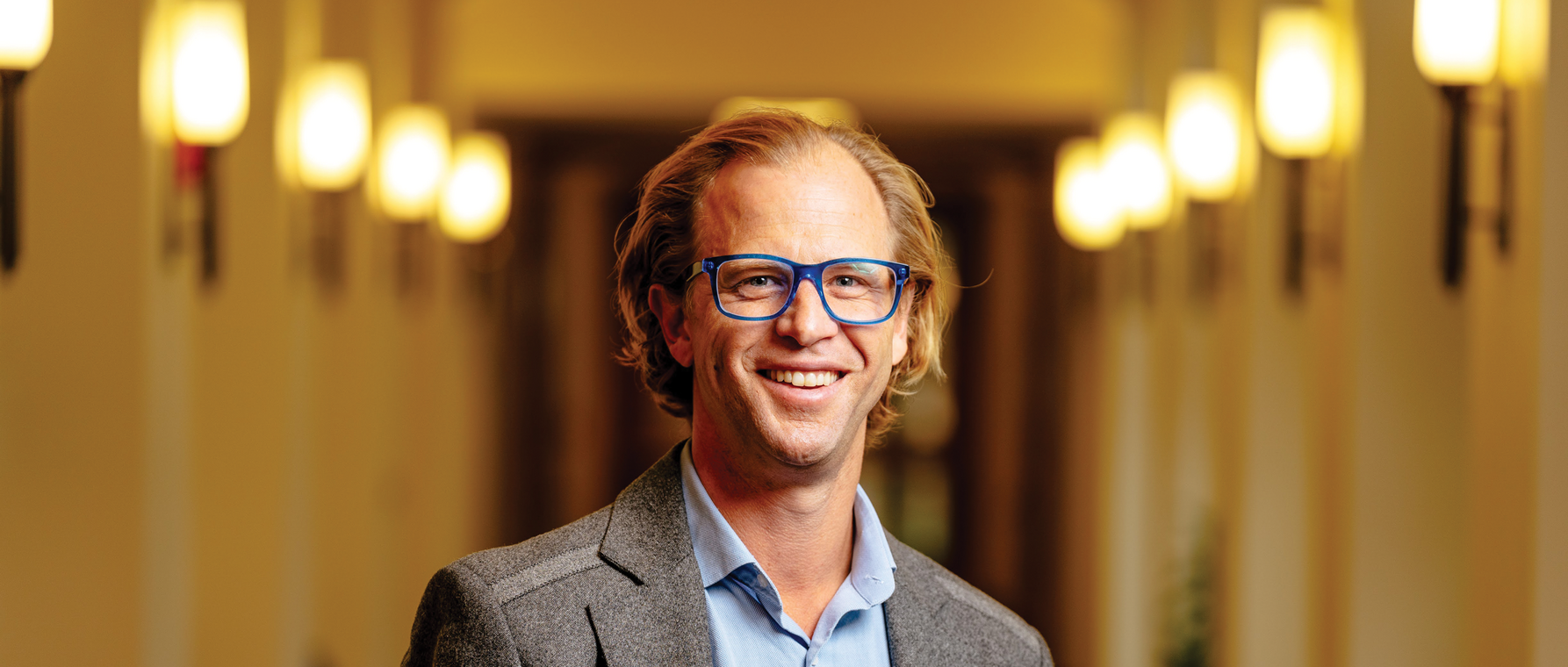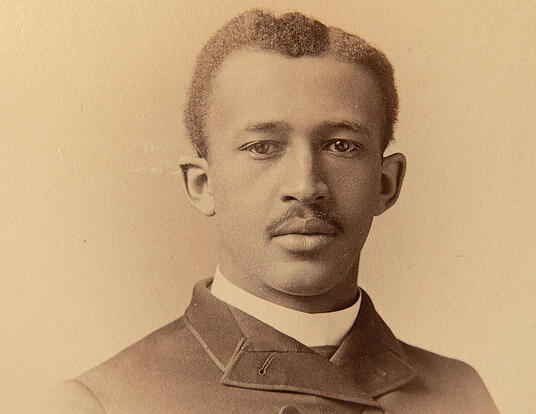Opportunity Costs
Justin Wolfers, PhD ’01, on why women are still underrepresented in the field of economics

In 2014, the International Monetary Fund named Justin Wolfers, PhD ’01, one of the "25 Economists Under 45 Who Are Shaping the Way We Think About the Global Economy". Recently, though, the University of Michigan Professor turned his gaze on the discipline of economics itself, specifically, the way that women in the field are treated.
You recently collaborated with colleagues Alicia Sasser Modestino, PhD ’01, Muriel Niederle, PhD ’02, and Pascaline Dupas on a study of women and bias in economics presentations. What was the question you were trying to answer, what was your method, and what did you find?
The big picture question is “Why are women still underrepresented in economics?” There’s an emerging body of research on this topic. To summarize it, every rock we look under we find evidence of bias, whether it’s in the publication process, the evaluation process, how we grant leaves, and so on.
On a personal level, I’m partnered with the economist Betsy Stevenson, PhD ’01, another GSAS alum. So, I have had the experience of seeing the career of a professional economist once through a man’s eyes and once through a woman’s eyes. We write a lot of papers together and I’ll give a talk and she’ll give a talk and we’ll immediately see that we have very, very different experiences. I suspect that gender may be part of it.
Now, one of the unique facts about economics is our seminar culture, which is far more abrasive relative to any other social science. So, it’s not hard to immediately think, “Is this part of the problem? Part of the underrepresentation of women in economics?”
Once we decided to study seminar culture, we needed to find people who were invited to seminars at top economics departments around the country, so we started recruiting graduate student collaborators who are listed on the paper as full co-authors. Nearly 100 graduate students around the country agreed to turn up at a bunch of seminars and collect data. We designed an iPad app where they could just sit in their classroom and code “Right now, a male professor started speaking. Right now, a female graduate student started speaking,” and so on. Some seminars we had multiple coders and we found that they coded very similarly, so there’s not a lot of subjectivity.
The result is that we have a complete map encoding literally hundreds of seminars at top institutions around the country. But if you really want to understand what’s going on, you have to tell stories. So, we asked our collaborators also to record their subjective impressions. Was this question patronizing? Was it hostile? Was it helpful? Was it clarifying? What we found was that women economists are on average interrupted 12 percent more often than men. And the nature of those interruptions is more likely to be patronizing and hostile.
What do those results tell us about the way that the economics profession treats women? What’s the impact on the careers of female economists and their ability to disseminate the knowledge they create?
Think of it this way: If you had 12 percent more scrutiny in every aspect of your professional life, the accumulation of that would be enormous. Our findings may be part of a broader pattern that’s reflective of the culture within economics. And that culture probably shapes a wide range of behaviors, from how we act at seminars, to how we evaluate people for tenure, how we read and referee reports, right down to how we treat each other in the hallways.
That culture may be particularly problematic in some of those domains, less so in others. For instance, women economists have told me anecdotally that they’re less likely to be invited out for a beer by their advisor. Now, is that important? Perhaps not. But perhaps it really matters: Relationships with advisors are lifelong relationships in which they continue to do the right thing by you for many, many years.
The bottom line is that we’ve yet to find a study that looked at any part of professional life for women economists where it didn’t look like the odds were somewhat stacked against them. So, I don’t want to say that seminars are the problem, but seminars are a reflection of the culture, and it’s a very male culture.
If that’s the case, what can be done to level the playing field for women economists?
A common refrain among economists is that our rough-and-tumble ways create greater scrutiny and rigor, and we don’t want to lose that. My response has always been that it’s hard to believe that oafish behavior is a complement to rigor and easy to believe it’s a substitute. That said, I’ve gone to seminars in many fields that were entirely respectful and you sit there and listen and at the end applaud. The true exchange of ideas is lost somewhere along the way and some rigor is lost. To my fellow economists who are afraid of moving in that direction, I say that neither I nor my co-authors want to go there. But it’s not an “either-or.”
The good news is that there’s a growing awareness of the impact of gender bias in economics. And we are making changes. Many of my male colleagues who are senior economists are now aware of the importance of showing leadership just by illustrating what productive behavior looks like. A lot of seminars at the University of Michigan, where I teach, now have a rule where you don’t interrupt for the first ten minutes.
It’s obvious that these changes are moves in the right direction. We can engage the ideas in economics with rigor and we can do it in a way that is respectful and welcoming. And I think there’s a lot more we can do in the years ahead.
Photo courtesy of Justin Wolfers
Get the Latest Updates
Join Our Newsletter
Subscribe to Colloquy Podcast
Simplecast





